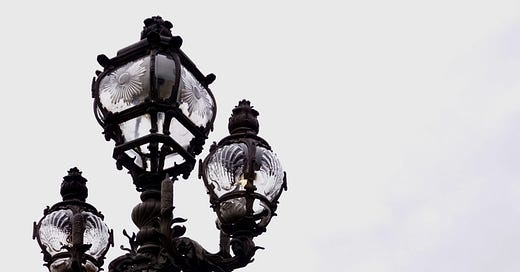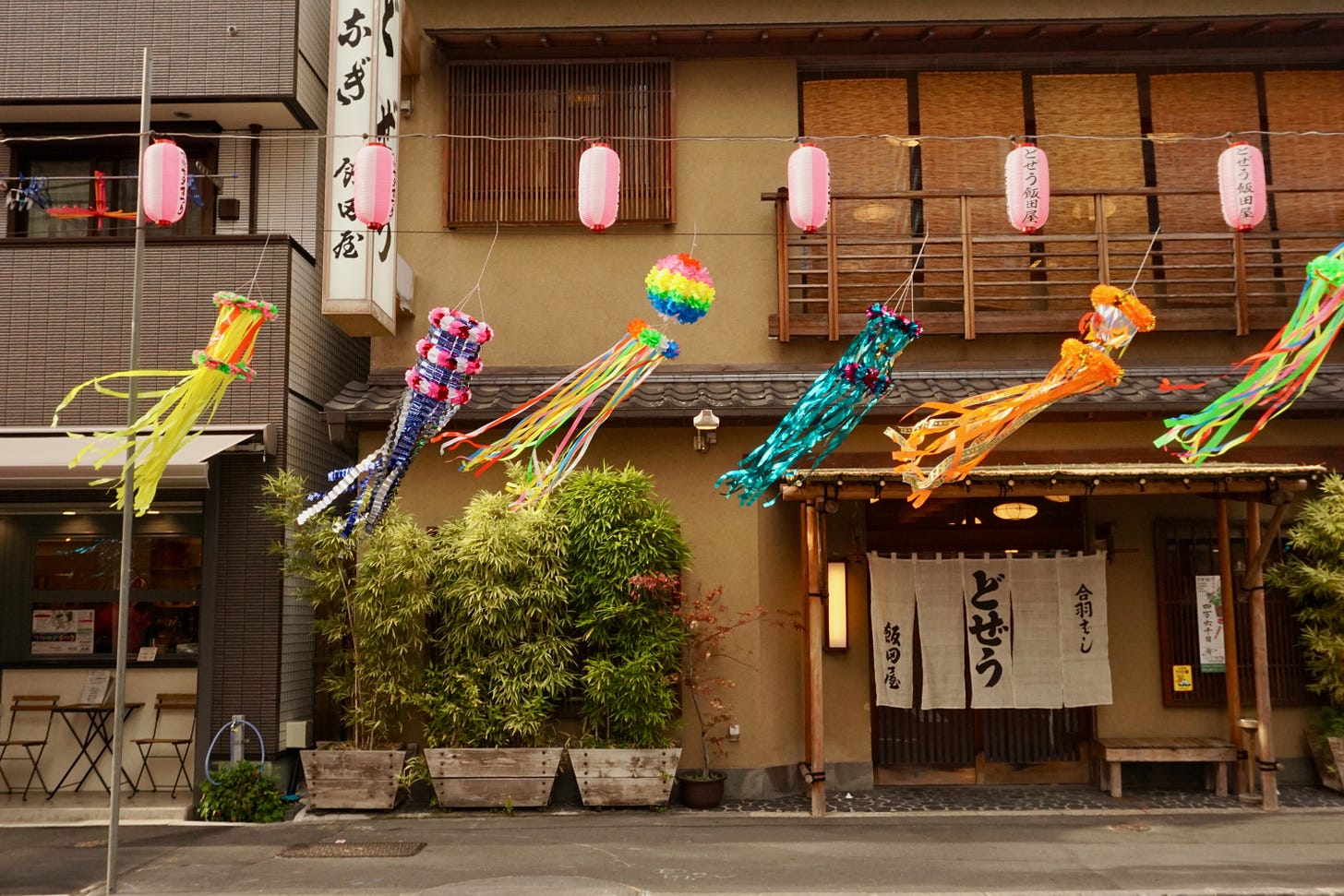The Stranger in Paris Who Stood Up to the Nazis
the most unassuming people have the most compelling stories to tell
Hello, friends!
I hope those of you who celebrate Thanksgiving had a cheery, cozy, restful holiday, that you ate well and squeezed your loved ones tight.
I took an unannounced publishing break last week. I started teleworking full-time (!) on fairly short notice, Nick and I were taking a Thanksgiving trip to Vienna, and life just got in the way.
I’m not typically a person who lets life get in the way. I always get the work done, even if it means stressing and rushing and staying up all night. But in the spirit of the holidays, I chose to be kind, and gave myself a pass this time. To be honest, I’m struggling to rebalance my life now that creative writing needs to be squeezed in on the margins of 8-hour work days. But I know it can be done. After today I’ll return to publishing every Tuesday and will see how it goes.
This week’s essay is about a stranger I met while traveling and how our chat changed the way I look at others—an interaction I still think about all the time. So, reader, your turn: have you ever had a random, fateful encounter that changed you or made you rethink how you view the world?
Have a wonderful rest of your week,
Sam
I’m not someone who seeks out interaction with random people, but on a rainy day in Paris, I approached a stranger at the urging of my mother. After climbing a rickety spiral staircase from the underground dankness of the Catacombs, we emerged on a quiet street, where the only other soul was an elderly gentleman. He was hobbling a few feet ahead, his back to us, gripping a low retaining wall for support. A cap was his only protection from the drizzle.
My mom stared after him. “We should offer him our umbrella,” she whispered, and by we she meant me, because I spoke French and she did not.
I was in no mood to engage with the man. I wanted to get out of the rain and curl up in a cozy bistro with a steaming cup of chocolat chaud. So I made up an excuse. “The French don’t like to be accosted by random people,” I said. (I find the French are no more or less open to chatting with strangers than Americans, but I figured my mom wouldn’t know enough to argue.)
Still, she didn’t drop it. “Just go ask if he’d like us to walk with him,” she said firmly. “Please, Sam. He reminds me of my dad.”
She had a point. My grandfather had died two years earlier. He was so fragile at the end, and had moved just like the man up ahead, back hunched, as though each step pained him. Once I noticed the resemblance, I couldn’t turn away. I gritted my teeth and approached.
“Excusez-moi, monsieur,” I held out the umbrella, my hand red from the chill of early spring. “Pouvons-nous vous aider? Can we help you?”
The man turned and looked at me. He was unremarkable in every way. Average height, simple clothes in navy and brown, a face whose distinguishing features—if there ever were any—had long since been lost to age, sinking beneath wrinkles and folds of loose skin.
He didn’t answer, but he latched onto my arm decisively, like it was the most natural thing in the world. My mom took his other side. I held the umbrella over his head, and we tried to preserve a polite distance as we huddled under it.
We walked several paces in uncomfortable silence until the man blurted in French, “I don’t limp just because I’m old, you know. I was tortured by the SS.”
I caught my breath. “What’s he saying?” My mom whisper-shouted over our companion’s head. I wasn’t sure what had possessed the man to make such a declaration, and I was too stunned to translate.
He took my speechlessness as an invitation to continue. “I fought for the Resistance,” he said. “I was set to be executed, but then the Allies liberated Paris.”
Raindrops plonked on the taut plastic of the umbrella as I searched for words to respond. It wasn’t my French vocabulary that was failing me—I wouldn’t have known what to say in any language. The man’s resemblance to my grandfather had let me believe they’d led similar lives: vigorous youths, church on Sundays with the wife and kids, tall glasses of lemonade on sunny days in the backyard. Happy and relatively uneventful. The truth was very different. While the man gripping my elbow might have spent many mornings in church and drank many glasses of lemonade, he had also challenged the Nazis and paid an unfathomable price. Neither thank you nor I’m sorry felt quite right.
I’d been quiet for so long that the man interjected again. “There aren’t many people like me anymore,” he said.
I replied weakly, “oui, c’est sûr”—that’s true—and I suddenly understood why the man was telling me all this. He had outlived most of his generation, and to those too young to remember what he had endured, he was just some decrepit geriatric. He wanted to be seen and known for what he was: someone strong and brave who had lived a life that mattered. A freedom fighter. He needed someone to whom he could tell his story, and I’d have to do.
I wanted so badly to oblige him by hearing more, but by then we had made it around the block, and the gentleman stopped under the neon green cross of a pharmacie. I asked if we could help him further. He politely declined, unhooked his elbow from mine, and stepped out from under the shelter of the umbrella. Then he disappeared past the doors with a limp that now looked splendid and dignified, and as I watched him vanish, I worried the pharmacist would see him as just another meek old man, collecting his medicine at the window before shuffling back out into the rain.
I still don’t make a habit of approaching strangers. But when I do, I ask to hear their stories, in case they need someone to tell.
Elsewhere
Do you travel over Christmas? The Guardian compiled sweet vignettes about readers’ unique Christmas Day travel experiences, including a visit to Petra, a trip to a childhood home in India, and a day on Bolivia’s salt flats. [The Guardian]
Now on my bucket list: sipping gin and tonics on a safari train through Zimbabwe. [BBC Travel]
Have you heard of Out of Office, an app that lets you share travel recommendations with friends? It could be super useful if enough people adopt it. (I am not affiliated with Out of Office, I just think it’s an interesting idea!) [Out of Office]
Tokyo, 2017
Just a pretty photo that I took on a trip to Japan and have always loved. See you next Tuesday!








“I ask to hear their stories in case they need someone to tell.” Poignant and beautiful story, Sam.
I have tears in my eyes a little over my lunchtime pasta because I'm Jewish so I'd have known exactly what to say: thank you. So thank you for helping him, and hearing his story.